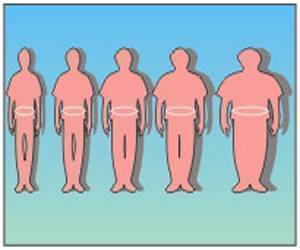Young children who fail to gain sufficient weight before the age of two are more likely to develop long-term health and developmental problems.

‘Young children who are underweight with multiple household risk factors recovered better than children with only a few household risk factors.’





"Household risk factors are often associated with mealtime stress and disrupted family routines as families struggle to help their child eat and grow," said Dr. Black, who is also the John A. Scholl, MD, and Mary Louise Scholl, MD, Professorship in Pediatrics. "The more mealtime stress a family had the more assistance we could provide, which might explain why these children did better." The study enrolled 286 children aged six to 36 months who fell below the fifth percentile for their weight/age. A skill-building mealtime behavior intervention developed by the Growth and Nutrition Practice was provided to families as part of routine care. The intervention includes access to healthy food, nutritional counseling, coaching to establish healthy eating habits and routines, and a video-recorded mealtime assessment.
The Division of Growth and Nutrition includes an interdisciplinary clinic for young children with growth and/or feeding problems. The Division conducts NIH-funded obesity prevention trials among toddlers and adolescents, follow-up of children prenatally exposed to illegal drugs, an intervention trial of micronutrients and early learning opportunities in India, and monitors the growth and development of young children as a Children's HealthWatch site. The current studies being conducted in the Growth and Nutrition Division include: Challenge! in Middle Schools; Children's HealthWatch; Ecological Momentary Assessment; Maryland Wellness Policies and Practices Project; Maryland's Building Blocks for Healthy Children; Prenatal Drug Exposure and Adolescent Drug Use: The Role of HPA Axis Regulation; and Project Grow Smart.
Data were collected for nine household risk factors as well as seven child risk factors such as prematurity and feeding disorders. Children with four or more household risk factors were placed in the top quartile and compared to children in the bottom three quartiles. Children in the top quartile for household risk factors experienced significant improvement in weight/age z-scores over a six month period. Children in the top quartile for child risk factors also experienced greater weight gain than children with fewer child risk factors. Children under age 24 months experienced significantly greater weight gain than older children, regardless of risk factors.
The Growth and Nutrition Practice pioneered the diagnostic and therapeutic use of video recordings. Videos are used by staff to observe and analyze a parent and child eating a meal. Videos are then shown back to parents so mealtime behaviors can be recognized and adjusted.
Advertisement
"When a child has eating problems or fails to grow, it often disrupts the entire family," added Dr. Black. "Instead of focusing only on the medical or nutritional issues that may be at play, we believe -- and this study reinforces -- the importance of incorporating the entire family into treatment. Making even small changes in a child's proximal environment like eating together at a table as opposed to the couch in front of the television can have significant benefits."
Advertisement
"Dr. Black is internationally recognized for her contributions to child health and development," said UM SOM Dean E. Albert Reece, MD, PhD, MBA, who is also Vice President of Medical Affairs at the University of Maryland and the John Z. and Akiko Bowers Distinguished Professor at UM SOM. "This research adds to the growing body of evidence Dr. Black has accumulated over the years that will surely influence the way children with growth issues are treated."
Source-Eurekalert









